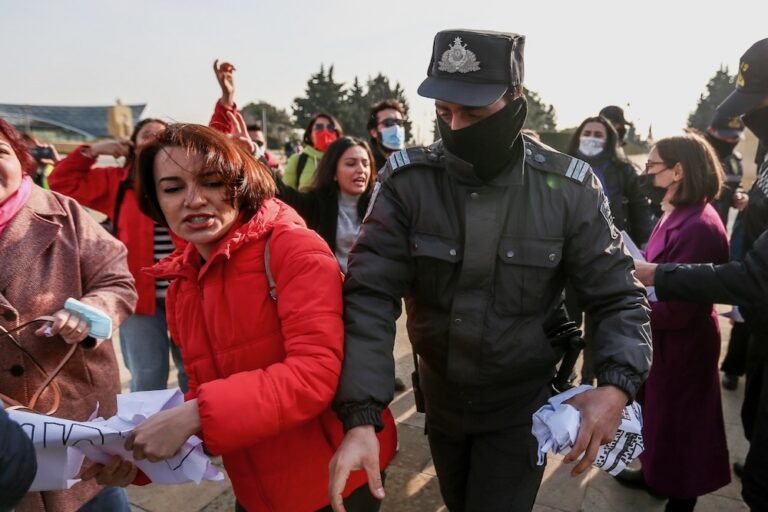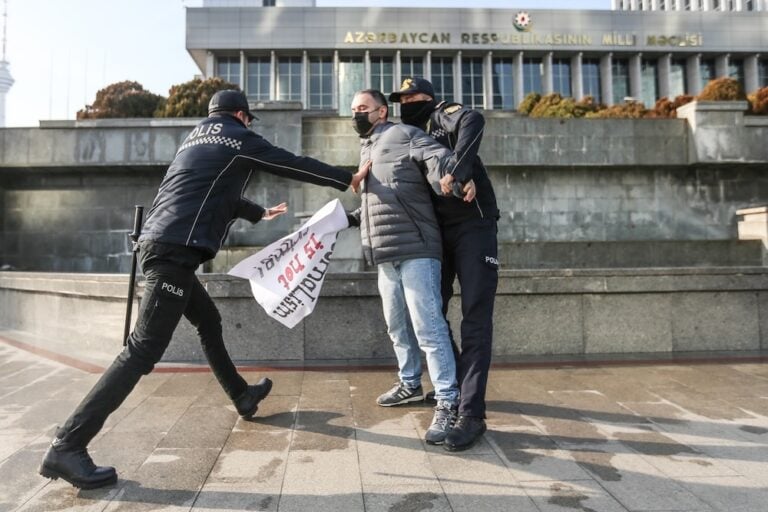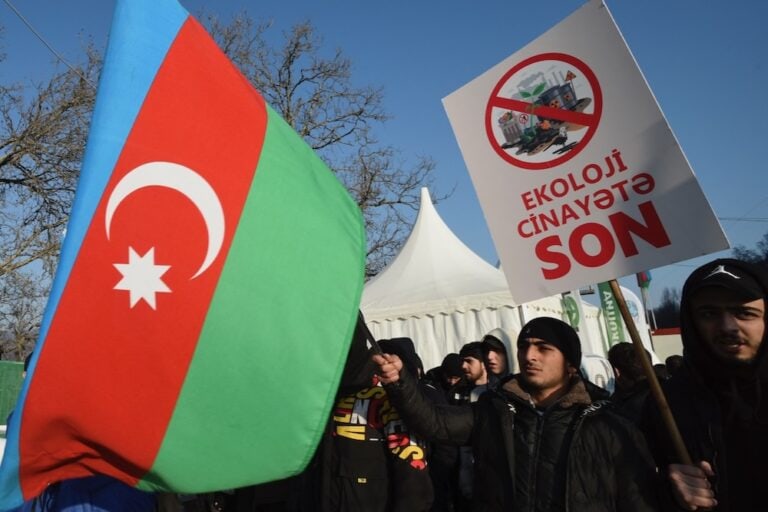On 4 June 2013, President Aliyev signed a bill criminalize defamatory and offensive views expressed on the Internet. Online activists could now face up to three years in prison for posting critical views online.
The Institute for Reporters Freedom and Safety (IRFS) resolutely condemns that President Aliyev has signed draconian amendments into the Criminal Code. These amendments make defamation over the Internet a criminal offense, punishable by imprisonment. They furthermore represent a major blow to freedom of expression ahead of the presidential elections, in an already tightly-controlled environment.
On Tuesday [4 June 2013], President Aliyev signed a bill passed by the Parliament that would criminalize defamatory and offensive views expressed on the Internet. Now, it is possible to launch a criminal case against online activists who post critical views on the Internet – referring to the Articles 147 and 148 of the Criminal Code – and jail them for up to three years.
“These amendments represent serious steps away from international norms. They would criminalize many exercises of freedom of expression online and empower security services to take action,” comments IRFS CEO and chairman, Emin Huseynov.
IRFS also continues to call for an end to the campaign of harassment against government critics. “The draconian Internet defamation law, unfortunately, does not represent a step in the right direction”, Huseynov noted.
IRFS emphasizes that the approval of these amendments is disrespectful of the government’s commitment to uphold freedom of expression and the Internet. They furthermore disrespect the president’s own order to improve national legislation (through, inter alia, the National Action Program for increasing the efficiency of the protection of human rights and freedoms in the Republic of Azerbaijan) to end criminal defamation laws which encourage self-censorship and thus restrict freedom of expression.
While hosting the UN Internet Governance Forum in November of 2012, Azerbaijani authorities tried to convince the world that Azerbaijan is a country with a free Internet, and that the government intends to carry out more important reforms in this field. The latest case was made by President Ilham Aliyev on 29 May at the Azerbaijan-US: Vision for Future Forum, where he tried to convince hundreds of US politicians attending the event that Azerbaijan is an area of fully free media and Internet. However, the president’s approval of the latest amendments shows that his pledges regarding human rights and his actual actions are in contradiction to one another.
IRFS recalls that – following the adoption of these amendments by the Parliament on 14 May – a number of local and international organizations, including the OSCE’s special representative on freedom of the media, Dunja Mijatovic, and the Council of Europe’s commissioner for human rights, Nils Muiznieks, sent an appeal to the president calling on him to refrain from signing the amendments, and veto the bill. But despite of all this, the president signed these amendments into law.
Apart from being in contradiction to both the Azerbaijani Constitution and the country’s international obligations, the criminal prosecution of journalists and bloggers for their free opinions has a chilling effect on the media.
The UN Human Rights Committee – the independent body of experts that provides the definitive interpretation of the International Covenant on Civil and Political Rights (ICCPR) – has said that defamation laws must be crafted with care to ensure that they do not serve, in practice, to stifle freedom of expression. State parties should consider the decriminalization of defamation and, in any case, the application of the criminal law should only be countenanced in the most serious of cases; imprisonment is never an appropriate penalty.
Despite being a state party to the ICCPR, Azerbaijan ignores its provisions, which demonstrates that the international legal instruments that the country has ratified have little importance for Azerbaijan.
IRFS calls on Azerbaijani authorities to live up to the standards and commitments reflected in the European Convention of Human Rights, the Helsinki Accords, the International Covenant on Civil and Political Rights, and the Universal Declaration of Human Rights. Toward that end, IRFS urges the government of Azerbaijan to repeal laws that would constrict fundamental freedoms and human rights and fulfill the country’s human rights obligations undertaken before international organizations.
IRFS further calls on the international community – particularly the Council of Europe and the OSCE – to take a stronger stance and exert greater pressure on the Azerbaijani authorities to fulfill their international human rights obligations.


